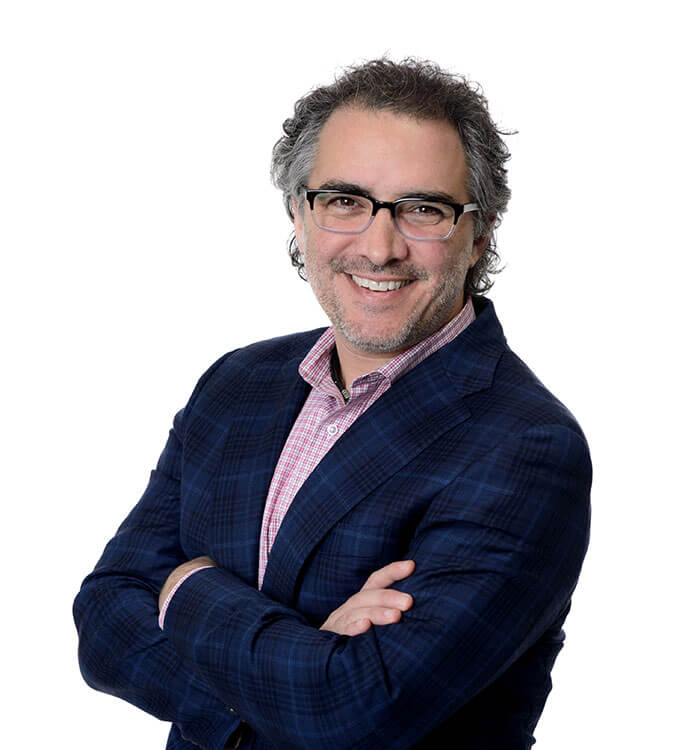Winter 2020 | UH Urology Institute Update
March 10, 2020
New hires, funding, and closing the gender gap in healthcare
Innovations in Urology | Winter 2020
 Lee Ponsky, MD
Lee Ponsky, MDUniversity Hospitals Urology Institute has more than doubled in size during the past year and a half, according to Lee Ponsky, MD, FACS, Director, UH Urology Institute, Leo and Charlotte Goldberg Chair of Advanced Surgical Therapies, Master Clinician in Urologic Oncology, University Hospitals Cleveland Medical Center, and Professor and Chairman, Case Western Reserve University School of Medicine. The department has grown its subspecialty lines with new hires, received a significant donation and is committed to changing the way men interact with the healthcare system.
NEW TALENT
UH Urology Institute has been adding to its different subspecialties, including oncology, female urology, men’s health, infertility, and reconstructive urology. The institute has recruited a number of new faculty members to support its development into one of the top programs in the country.
Jonathan Shoag, MD, a nationally coveted recruit, is one of these exciting hires. “He is without a doubt one of the up-and-coming superstars in the field of urologic oncology,” says Dr. Ponsky. Dr. Shoag completed his undergraduate studies at the University of Pennsylvania, went on to earn his medical degree at Harvard University and Massachusetts Institute of Technology, and then to Cornell University for his urology residency and oncology fellowship. Though it’s early in his career, Dr. Shoag has earned prestigious recognition for his research, including a Damon Runyon Physician-Scientist award. When he comes to University Hospitals, he will conduct research and join the clinical and teaching faculty.
UH has also recently been joined by Nannan Thirumavalavan, MD, as Chief of Male Reproductive and Sexual Health. Dr. Thirumavalavan completed a fellowship in male infertility at Baylor College of Medicine in Houston, Texas, one of the top places to train in this specialty, according to Dr. Ponsky. He has an interest in oncofertility, helping patients undergoing cancer treatment preserve fertility, as well as fertility preservation in patients undergoing different types of transplants.
UH aims to create an environment that not only attracts but also retains talent. “We are focusing very heavily on what we can do to make sure that our residents, faculty and staff are engaged and happy,” says Dr. Ponsky.
For example, the Parallel Paths program, led by Britt Conroy, MD, PhD, JD, MS, Director of Clinical Research, UH Urology Institute, and Assistant Professor, School of Medicine, helps to support clinicians’ academic pursuits while they are busy providing patient care.
SUPPORT FROM SANDY AND SALLY CUTLER
Last year, Sandy and Sally Cutler gifted UH $15 million, which will be used to create the Cutler Chair in Men’s Health and the Cutler Center for Men’s Comprehensive Care. Shubham Gupta, MD, FACS, Division Chief of Reconstructive Urology at UH Urology Institute, will be named the inaugural Chair in Men’s Health this May. Dr. Gupta, a 2019 addition to the UH team, is leading UH’s gender care program, which is focused on providing care to the LGBTQ community.
The Cutler Center for Men’s Comprehensive Care will be the centerpiece of the health system’s strategy for improving men’s healthcare.
BETTER HEALTHCARE FOR MEN
“We have seen in the Cleveland area there are about a quarter million less men than women who seek care every year,” says Dr. Ponsky. “We are trying to change social norms so we can take that 250,000 men and bring it to zero.” This significant effort will include offering evening, weekend and telemedicine appointments, providing access to patient navigators, and coordinating appointments among all healthcare specialties.
UH is also striving to determine the best way to interact with male patients at different stages in their lives. For example, suicide is a leading cause of death in men ages 18 to 30, according to Dr. Ponsky. “If we catch issues early and intervene early enough, we can make an impact,” he says.
As men age, UH wants to show them that engaging with healthcare can improve their lives. This new approach will take into account more than just traditional men’s care (erectile dysfunction, difficulty urinating and infertility). Instead, it will aim to be comprehensive, covering these issues as well as screening tools for men’s health concerns as they move through each decade of their lives.
“Once we establish [the program] and find ways that are working, we need to then create standard operating procedures and best practices to share with other institutions around the country,” says Dr. Ponsky.
To refer a patient to UH Urology Institute, call 216-553-1595 or contact Dr. Ponsky at Lee.Ponsky@UHhospitals.org.


